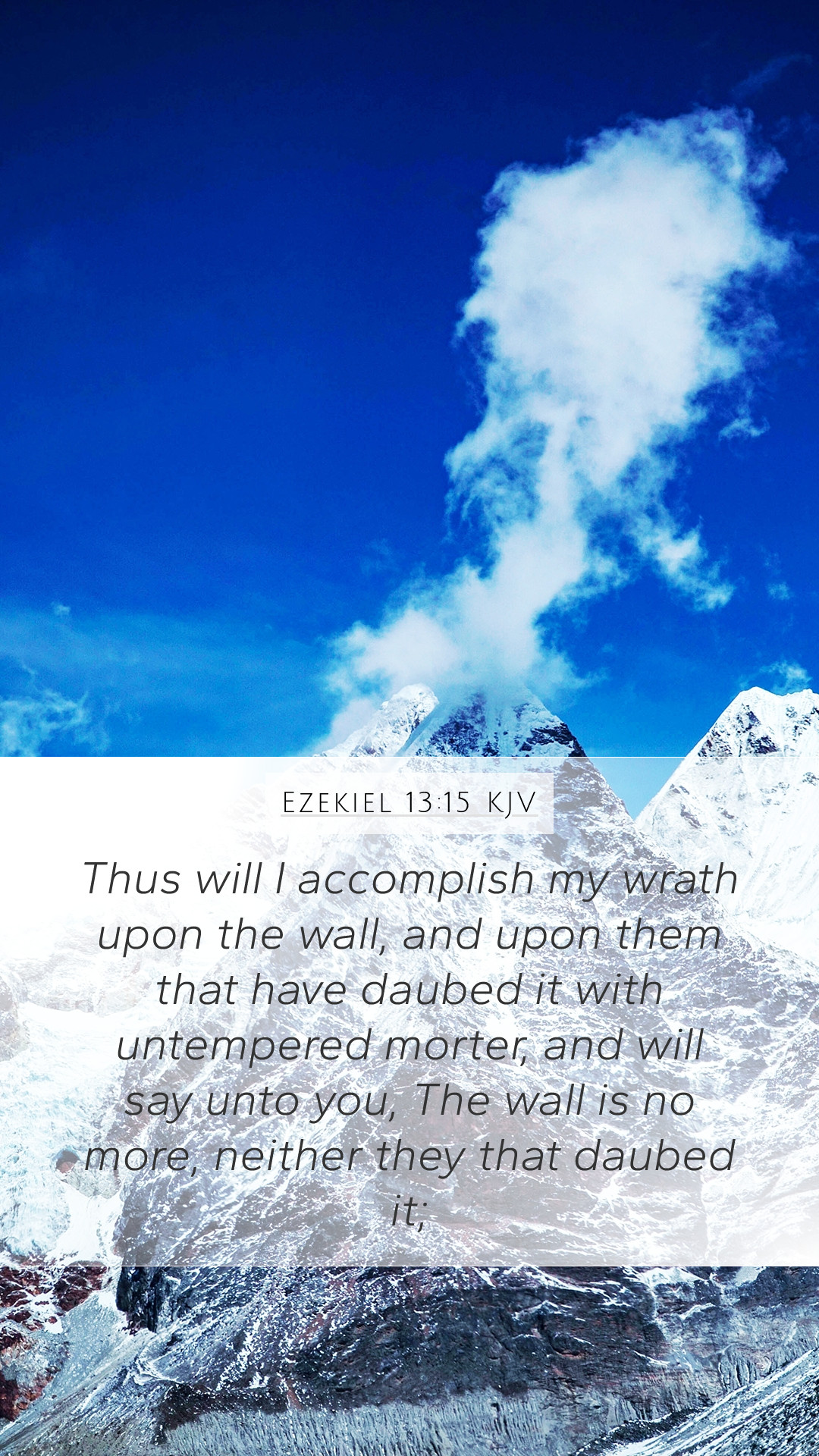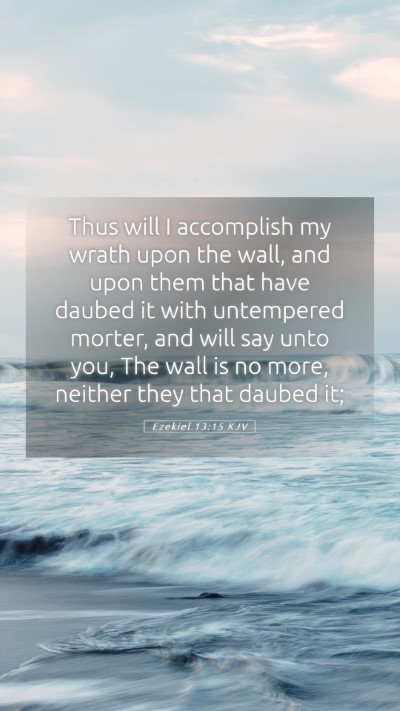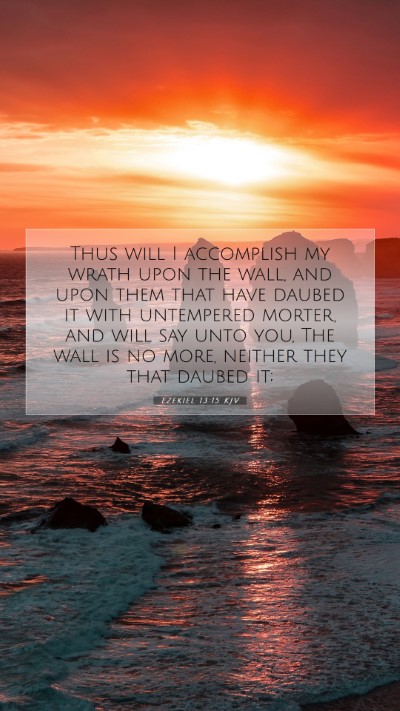Bible Verse Commentary on Ezekiel 13:15
Ezekiel 13:15 states: "Thus will I accomplish my wrath upon the wall, and upon them that have daubed it with untempered morter; and say unto them, That it shall fall." This verse emphasizes God's judgment against false prophets who mislead His people.
Summary of Insights
This analysis combines insights from public domain commentaries by Matthew Henry, Albert Barnes, and Adam Clarke. Each commentary offers valuable perspectives on the implications of the verse, giving us a richer understanding of its meaning.
Context and Historical Background
The Book of Ezekiel addresses the exiles in Babylon during a time of great turmoil and spiritual disillusionment. Ezekiel, as a prophet, was tasked with delivering God's messages, often filled with warnings and calls to repentance. This particular verse falls within a section where God condemns false prophets and the misleading messages they deliver.
Matthew Henry's Commentary
Henry emphasizes that the “wall” symbolizes the false security established by these prophets through their untruthful prophecies. The "untempered morter" refers to their weak and ineffective teachings that lack substance. Just as a wall built with poor materials will not stand, so too will the falsehoods of these prophets fail. God's wrath, Henry notes, is directed towards both the deceivers and the deceived, as both are complicit in rejecting the truth.
Albert Barnes' Commentary
Barnes elaborates on the metaphor of the wall, indicating it represents the protection that is falsely promised by these prophets. The term “untempered morter” suggests a lack of integrity in their teachings. Barnes stresses that God's judgment will be thorough, as He will allow the wall to collapse, symbolizing the inevitable fall of those who trust in falsehoods. This highlights the importance of discernment in spiritual leadership and prophecy.
Adam Clarke's Commentary
Clarke points out the gravity of the situation, describing how the leaders of the people have led them astray with their comforting but false messages. He discusses the consequences of relying on such deceptive teachings, which will ultimately lead to disaster. Clarke's interpretation strongly connects with the idea of accountability, not only for the prophets but also for the people who follow them blindly.
Bible Study Insights
For readers seeking bible study insights, Ezekiel 13:15 serves as a powerful reminder to evaluate the teachings we accept. It teaches the risk of being misled by false doctrines and emphasizes the importance of seeking truth through scripture study and prayer. The verse supports bible study groups by encouraging communal discussions about discernment and the integrity of messages shared within spiritual circles.
Application of the Verse
In terms of practical application, believers are encouraged to critically assess spiritual teachings against the backdrop of the Bible. This reinforces the necessity of utilizing proper bible study tools and seeking out accurate bible study resources to avoid falling prey to misguided interpretations.
Cross References
- Jeremiah 14:14 - God's warning about false prophets.
- Matthew 7:15 - Jesus’ teaching on discerning false prophets.
- Ezekiel 22:28 - Similar condemnation of false prophets.
Conclusion
Understanding Ezekiel 13:15 calls for a deep dive into both historical context and personal reflection on the truths we hold. By assessing the insights from revered commentaries, we gain a comprehensive bible verse explanation that not only informs but also challenges us to seek integrity in our spiritual journey.


